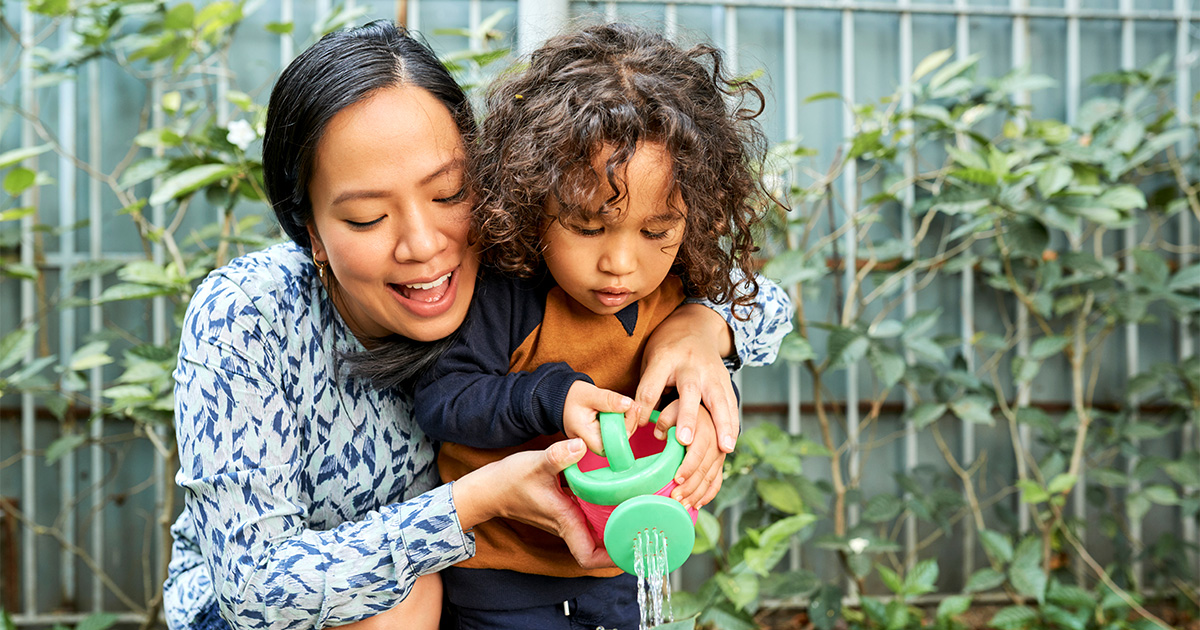- 888.258.8995
- Schedule a Tour

Spending time outdoors offers rich, meaningful experiences for your children and family where core memories are made, and guardianship of the natural world is nurtured. There are many positive benefits to your child, including gross motor development, nature connection, cognitive development, and overall health and mental well-being.
While it can take a bit of planning and preparation, the natural world offers endless opportunities for children to explore, wonder, and grow. But what exactly is outdoor learning, and why is it so important in children’s lives?
Research Is Clear: Nature Builds Whole-Child Development
According to the Children & Nature Network, nature-rich experiences improve children’s cognitive development, social and emotional regulation, physical health, and risk assessment. When children have regular access to outdoor environments, they show stronger attention spans, more creativity, and reduced levels of stress and anxiety.
The Natural Start Alliance further highlights that nature-based learning supports foundational life skills such as collaboration, higher-order thinking skills, curiosity, problem-solving, and resilience. Whether it’s digging in soil or observing an ant colony, children given the space to play and explore outside develop and nurture a lifelong relationship with the world around them.
What Outdoor Learning Looks Like in Our Classrooms
At Learning Care Group schools, outdoor learning is more than a daily routine, it’s an intentional, integrated part of the curriculum. Many of our centers across the country include:
- Outdoor Classrooms where children can paint, read, and build with natural materials.
- Gardening Projects where children grow herbs, vegetables, or flowers to learn about lifecycles, responsibility, and environmental care.
- Nature-Rich Classrooms where natural materials such as pinecones, tree slices, seashells, and stones are part of indoor play and learning.
Our educators use these environments to spark curiosity and deepen learning. A leaf found outside might inspire a story, a science observation, or a math activity. The goal is not just to “play outside,” but to learn with nature acting as an engaging teacher.
How Families Can Bring Outdoor Learning Home
There are simple and meaningful ways you can incorporate experiences in nature:
- Beach Days: Explore the shore by observing shells, tracing letters in the sand, or talking about tides and sea life.
- Hiking Adventures: Go on a slow walk through a natural environment. Take time to breathe and appreciate the wonders and beauty of the natural world. Bring children’s attention to details by looking at different leaf shapes, listening to birds, or tracking animal footprints.
- Camping (or Backyard Camping): Tell stories under the stars, identify constellations, or journal about what you see and hear.
- Nature Playdates: Meet friends at a park or trail and bring tools for exploration, such as magnifying glasses, paintbrushes, or recycled containers for water play. Spending time with friends outside increases children’s opportunities to play, connect, solve problems, and create while socializing with others.
Learning Happens Everywhere
Outdoor learning is about more than just spending time outside. It’s about fostering wonder, discovery, and connection. At Learning Care Group, we believe the natural world provides rich learning opportunities that all children can experience and benefit from.
Families play a vital role in this journey. By encouraging outdoor exploration, whether through gardening, walking, or just stopping to admire a bug, you help nurture your child’s connection to the environment. So, lace up your shoes, step outside into the sunshine (or splash in puddles!), and watch your child learn, play, and grow as they engage with the world.
Explore this topic more by visiting the Children & Nature Network and the Natural Start Alliance.
